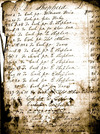
Statement by Abraham Lincoln and Dan Stone on the Subject of Domestic Slavery March 3, 1837
- Subject:
- U.S. History
- Material Type:
- Primary Source
- Author:
- Susan Jennings
- Christopher Gilliland
- Linda Coslett
- Nancy Schurr
- Date Added:
- 02/03/2022

Statement by Abraham Lincoln and Dan Stone on the Subject of Domestic Slavery March 3, 1837
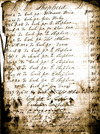
Alexander Stephens' Pro-Slavery argument at the beginning of the Confederate States of America
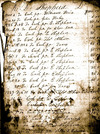
Carnegie, Andrew. "The Gospel of Wealth" Carnegie Corporation of New York. 2017,p.11-14, https://media.carnegie.org/filer_public/0a/e1/0ae166c5-fca3-4adf-82a7-74c0534cd8de/gospel_of_wealth_2017.pdfDescription: A millionaire industrialist addresses his philosophy of philanthropy
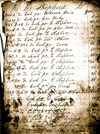
Angelina Grimké. “Appeal to the Christian Women of the South”. Book excerpt, 1836. From TeachingAmerican History. https://teachingamericanhistory.org/document/appeal-to-christian-women-of-the-south/ (accessed January 19, 2022)Description: Grimke writes an anti-slavery tract.
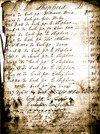
Preston, Thomas. “Captain Thomas Preston’s Account of the Boston Massacre.” Boston Massacre Historical Society. January 19, 2022 < http://www.bostonmassacre.net/trial/acct-preston1.htm>
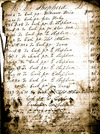
Summary of the sworn testimony of Samuel Drowne, March 16, 1770
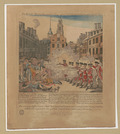
Smith, Sidney Lawton, Engraver, and Paul Revere. The bloody massacre perpetrated in King - Street Boston on March 5th, by a party of the 29th Regt. / engrav'd printed & sold by Paul Revere, Boston ; re-engraved by Sidney L. Smith. Boston Massachusetts, 1908. Boston, Mass.: Published by Charles E. Goodspeed. Photograph. https://www.loc.gov/item/2012648847/Embellished Engraving of the scene of the Boston Massacre by Paul Revere
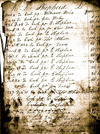
Douglass, Frederick. "Emancipation Proclaimed." Frederick Douglass Project Writings- University of Rochester. 1862, https://rbscp.lib.rochester.edu/4406Description: Stephen Douglass reacts to the Preliminary Emancipation Proclamation
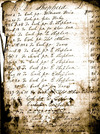
Douglass, Frederick. "The Meaning of the Fourth of July for the Negro"Speech, Rochester, NY, July4, 1852. Independence Hall Association (ushistory.org). https://www.ushistory.org/declaration/more/douglass.htmlDescription: Douglass' address to a predominantly white audience regarding the celebration of the Fourth of July by African Americans
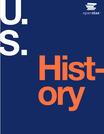
U.S. History is designed to meet the scope and sequence requirements of most introductory courses. The text provides a balanced approach to U.S. history, considering the people, events, and ideas that have shaped the United States from both the top down (politics, economics, diplomacy) and bottom up (eyewitness accounts, lived experience). U.S. History covers key forces that form the American experience, with particular attention to issues of race, class, and gender.Corbett, P. Scott, Volker Janssen, John M Lund, Todd Pfannestiel, Sylvie Waskiewicz, and Paul Vickery. U.S. History. Houston, TX: OpenStax, 2014. https://openstax.org/books/us-history/pages/1-introduction .
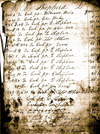
Lincoln, Abraham. Abraham Lincoln papers: Series 2. General Correspondence. -1864: Horace Greeley to Abraham Lincoln, August 1, 1862 Clipping of Letter; endorsed by Lincoln. August 1, 1862.Manuscript/Mixed Material. https://www.loc.gov/item/mal4233500/.
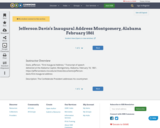
Davis, Jefferson. "First Inaugural Address." Transcript of speechdelivered at the Alabama Capitol, Montgomery, Alabama, February 18, 1861.https://jeffersondavis.rice.edu/archives/documents/jefferson-davis-first-inaugural-addressDescription: The Confederate President addresses his countrymen
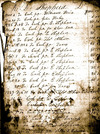
Brown, John. Address of John Brown to the Virginia Court, when about to receive the sentence ofdeath, for his heroic attempt at Harper's Ferry to give deliverance to the captives, and to let theoppressed go free ... Boston. Printed by C. C. Mead, 91 Washin. Boston, 1859. Pdf.https://www.loc.gov/item/rbpe.06500500/Description: John Brown defends himself before his sentence is rendered
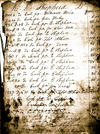
Calhoun, John C., “Speech on the Reception of Abolition Petitions, February, 1837.”
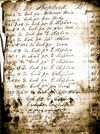
President Lincoln addresses a group of border-state politicians about emancipation in a letter to Albert G. Hodges
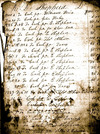
Thoreau, Henry David. 1906. The Writings of Henry David Thoreau (WaldenEdition) Translated by Bradley Dean (Thoreau Institute) Boston:Houghton Mifflinand Company, 1906 (https://archive.vcu.edu/english/engweb/transcendentalism/authors/thoreau/johnbrown.html)Description:A eulogy on the day of John Brown’s execution
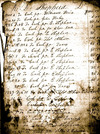
2 articles written by Frederick DouglassFrederick Douglass, “What Shall Be Done with the Slaves if Emancipated?” Douglass Monthly, January 1862Frederick Douglass, “Why Should a Colored Man Enlist?” Douglass’ Monthly, April 1863Letter from James Henry Gooding to President LincolnJames Henry Gooding to President Lincoln, September 28, 1863, published in Herbert Aptheker, ed., A Documentary History of the Negro People in the United States (New York: Citadel Press, 1951), 482-84.
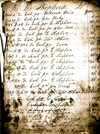
Thomas Morton's Descriptio of Native Americans in New England
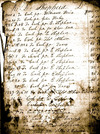
Garrison, William Lloyd. “To The Public”. The Liberator. January 01, 1831. From Teaching AmericanHistory. https://teachingamericanhistory.org/document/to-the-public/ (accessed January 19, 2022).Description: First page of the inaugural issue of this anti-slavery newspaper.